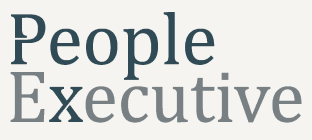I recently visited an Alpaca farm – in Cape Town’s beautiful Winelands. Alpacas apparently make great guards for herds of sheep, loudly and violently confronting the predators who wreak carnage on the flock – not because of the numbers aforesaid predators kill and eat but because wild dog and jackal puppies, while learning to hunt, injure dozens of lambs for each one they kill. It is these injuries, untended, which take a toll on the flock. The point of this rather meandering (though potentially interesting) tale is encapsulated in the recalled en route conversation between Dad, who is a qualified High-School teacher of English, Afrikaans and History (and an honorary nature conservation officer) and our ten-year-old daughter.
Dad: “They’ve got Alpacas AND Llamas? They’re the same thing, aren’t they?
Emily: “Uh Duh, Dad. Alpacas live in the mountains, and they’re smaller and woollier. Llamas live on the grasslands, and they’re known for spitting – like camels.”
Dad: Where did you learn that?
Emily: “I asked Google, of course. Duh. (sic).”
We are on the brink of a massive shift in the pedagogical landscape, and much as the IoT (or more appropriately, the IoE – the Internet of Everything) will converge disciplines and disintermediate learning, so the advances in access to, volume of, and variety of knowledge and opinion will fundamentally change the way we educate ourselves and others.

In Africa, we have long recognised that an education system which favours the children of a privileged few perpetuates all modes of inequality. And the #feesmustfall protests (looking this up yourself would be a good example of ‘heutagogy’ – self-directed learning) are just the visible tip of the iceberg of a growing upswell of discontent that is based primarily on access and cost. And we are seeing a market which is increasingly responsive to this dynamic, highly competitive and almost always with overt pan-African ambition and strategies.
Jack Hammer, Kestria’s South African Partners, have seen some extremely interesting developments in the Education (and EdTech) sector in Africa. As online offers an attractive (and qualitatively appealing) component and/or alternative to on-site education, universities are fundamentally shifting their paradigm of cost related to the site and physical constraints. University as a Platform (UaaP) will shift the paradigm of facilitated learning, with the opportunity for traditional institutions to offer massively expanded programmes (MOOCs) in a way which balances the on-site cost and quality of a prime degree against the opportunity to enrol huge numbers of students.
Proliferation of private for-profit primary, secondary and tertiary institutions is noticeable, with increased collaboration amongst existing institutions, strong merger and acquisition activity and the emergence of new education Brands.
We have seen substantial investment inflow from abroad to drive inclusive, accessible education. Our favourite clients include social impact entrepreneurs, private equity and donor-led foundations. We are also seeing very meaningful investment in for-profit education from some of Southern Africa’s ‘must-watch’ institutional investment houses.
Entrants to the market are stocking newly-formed executive teams with increasingly scarce commercial academic leaders, and encounter a number of areas of scarce skill such as Student Success, Online Content creation and delivery, Digital and Blended learning and Regulatory Stakeholder management (the regulatory framework in South Africa, in particular, can present unexpected bottlenecks if approached without a clear sense for the dynamic).
The traditionally slow pace of academic and regulatory change is shifting, and clients increasingly demand private sector or entrepreneurial experience. “Urgent”, says one client “means next week, not next academic year”.
University rankings are determined not by enrolment numbers but by student success – and many of Southern Africa’s established institutions have traditionally stayed away from distance and online models. Possibly to their future disadvantage as younger institutions have the jump on cornering the online market, and are ahead on the accreditation cycle.
The prevailing rhetoric encompasses UaaP, “Africanised” MBAs, multidisciplinary degrees, blended delivery, EaaS (Education as a Service) and internationally linked programmes.
At the BRICS conference just concluding in Johannesburg South Africa, the skills gap is a hot topic. We know the route that China needed to take to achieve its’ current global stature – building from a low skills base to produce low-wage, cheap, mass-produced products. It appears that Africa is the next hub for low-cost production, with secondary processing and further beneficiation the realm of more educated and skilled continents. But we would be naïve to think the trajectory for Africa will mirror this - the Fourth Industrial Revolution and the advances in self-determined learning might just change the game for us all.

